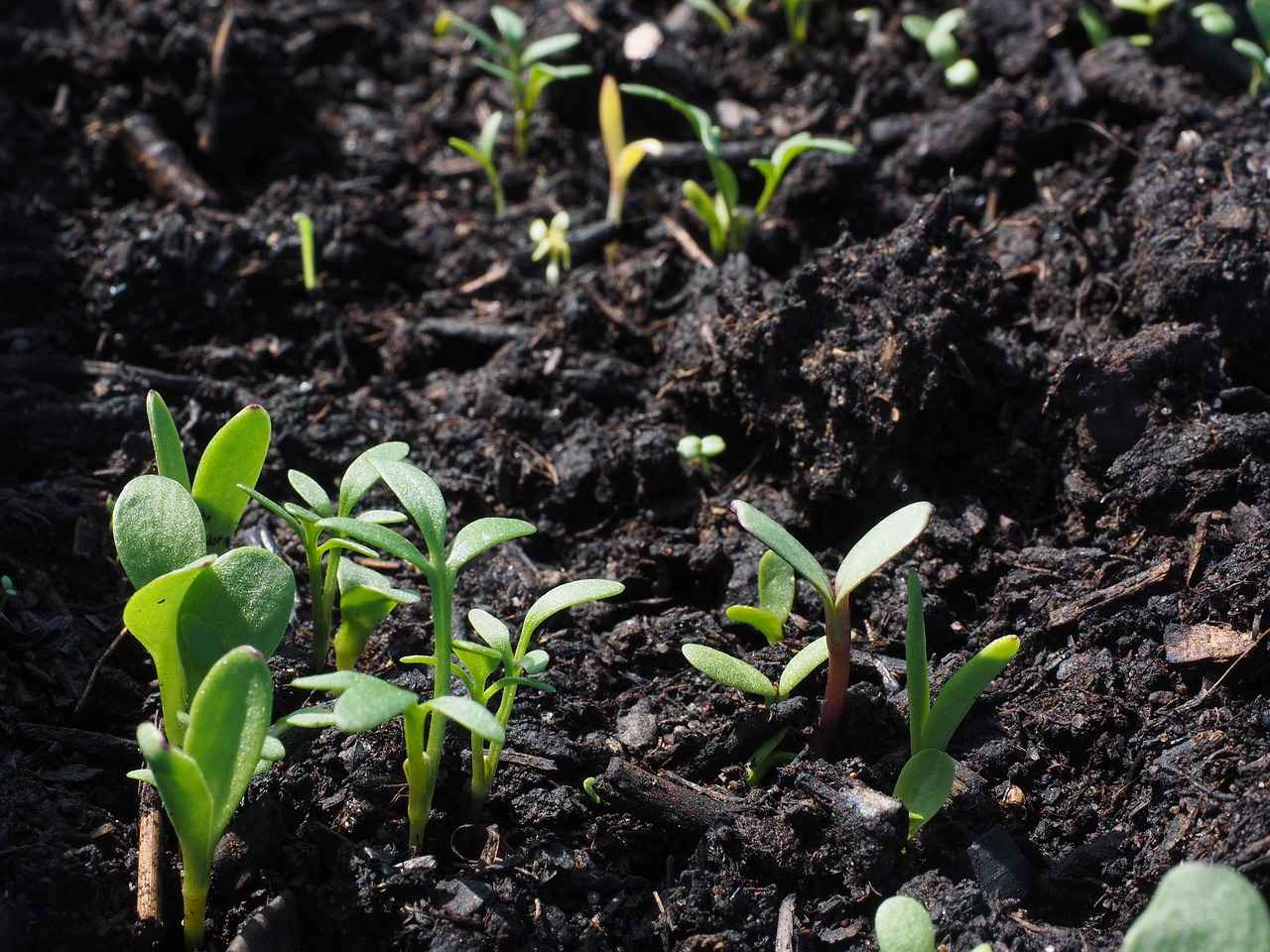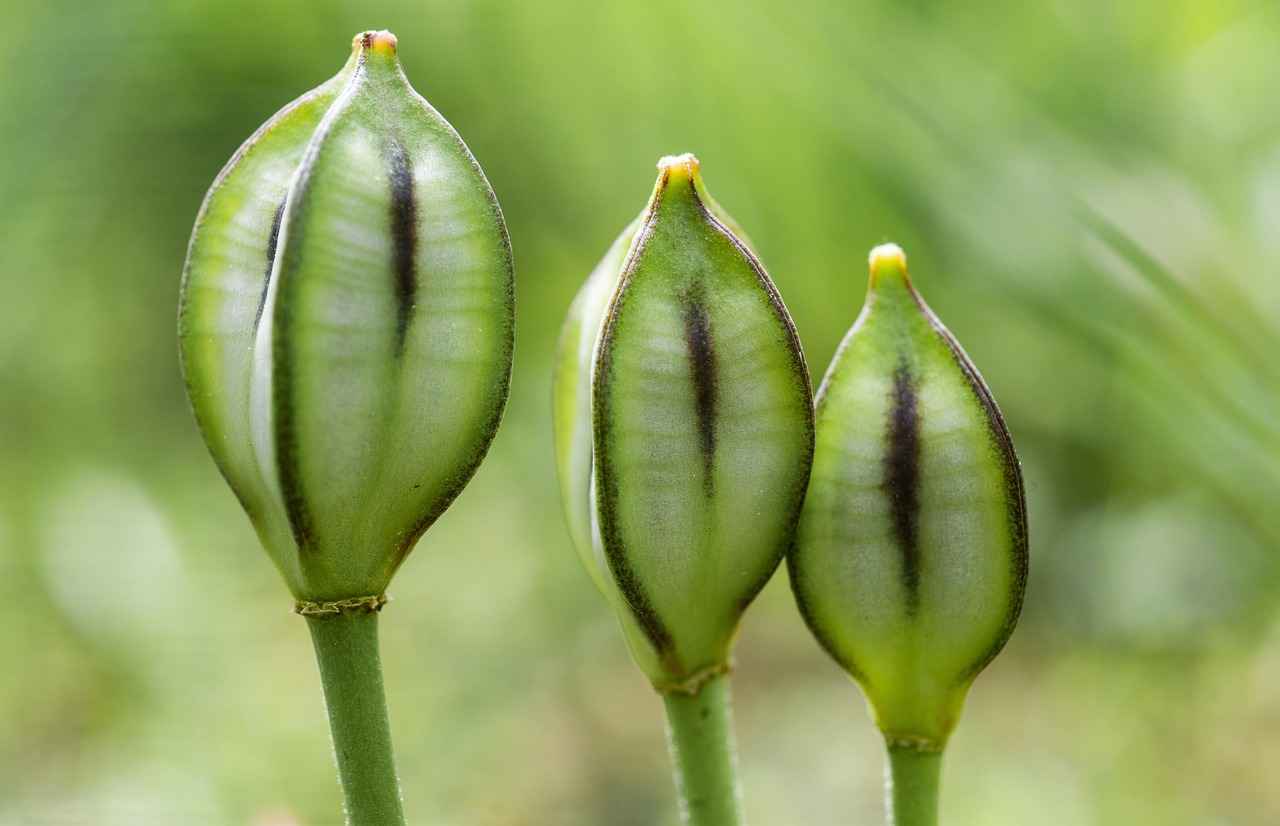Chia seeds have gained immense popularity as a superfood, particularly among health-conscious individuals. However, many expectant mothers wonder if these tiny seeds are safe to consume during pregnancy. This article delves into the safety of chia seeds during pregnancy, providing insights from health experts, exploring their nutritional benefits, potential risks, and offering practical advice for incorporating them into a healthy diet.
Chia seeds are small, nutrient-dense seeds derived from the Salvia hispanica plant. They are rich in essential nutrients, including:
- Omega-3 fatty acids
- Dietary fiber
- Protein
- Calcium
- Iron
- Magnesium
This impressive nutritional profile makes chia seeds a popular choice for those looking to enhance their overall health, especially during pregnancy.
Many experts agree that chia seeds can be safely consumed during pregnancy, but moderation is key. Pregnant women should consider their individual health conditions and dietary needs before incorporating chia seeds into their meals. Consulting with a healthcare provider is always recommended.
Chia seeds offer a variety of health benefits for pregnant women, including:
- Improved digestion: The high fiber content helps alleviate constipation, a common issue during pregnancy.
- Enhanced hydration: Chia seeds can absorb water and form a gel-like consistency, aiding in hydration.
- Nutrient boost: They provide essential nutrients that support fetal development and maternal health.
Omega-3 fatty acids are vital for brain development in the fetus. Chia seeds provide an excellent plant-based source of these essential fats, which can positively impact both maternal and fetal health.
The dietary fiber in chia seeds can help pregnant women manage digestive issues, such as constipation, by promoting regular bowel movements and overall digestive health.
While chia seeds are generally safe, there are some potential risks to consider:
- Excessive consumption: Overeating chia seeds can lead to digestive discomfort, including bloating and gas.
- Improper preparation: Consuming dry chia seeds without proper hydration can lead to choking or digestive blockages.
Incorporating chia seeds into your pregnancy diet can be simple and enjoyable. Here are some practical tips:
- Recommended serving sizes: Start with one to two tablespoons per day and monitor your body’s response.
- Preparation methods: Soak chia seeds in water or add them to smoothies, yogurt, or oatmeal for better digestibility.
Before making significant dietary changes during pregnancy, it’s crucial to consult healthcare providers. They can provide personalized advice based on individual health needs and dietary preferences, ensuring a safe and balanced diet.
Research on chia seeds and pregnancy is still emerging. However, existing studies suggest that their nutritional profile can be beneficial. Ongoing research will continue to shed light on their effects during this critical period, helping to inform expectant mothers about the best dietary choices for their health and their baby’s development.

What Are Chia Seeds and Their Nutritional Profile?
Chia seeds, derived from the Salvia hispanica plant, are incredibly nutrient-dense and have gained immense popularity as a superfood among health enthusiasts. These tiny seeds are not only versatile in culinary applications but also offer a plethora of health benefits, especially for pregnant women. Their rich nutritional profile includes a variety of essential components that support overall health.
Chia seeds are tiny, oval-shaped seeds that are predominantly black or white. They are known for their impressive nutritional benefits, which include:
- Omega-3 Fatty Acids: Chia seeds are one of the richest plant-based sources of omega-3 fatty acids, which are essential for brain health and development.
- High Fiber Content: With approximately 11 grams of fiber per ounce, chia seeds help promote digestive health and can aid in maintaining regular bowel movements.
- Protein: These seeds contain about 4 grams of protein per ounce, making them a great addition to vegetarian and vegan diets.
- Essential Minerals: Chia seeds are packed with minerals such as calcium, magnesium, and phosphorus, which are vital for bone health and metabolic functions.
- Antioxidants: They are rich in antioxidants, which help combat oxidative stress and inflammation in the body.
Due to their unique ability to absorb water and form a gel-like consistency, chia seeds can also contribute to a feeling of fullness, which may assist in appetite control. This property makes them an excellent addition to smoothies, puddings, and baked goods.
Chia seeds are often labeled as a superfood due to their high concentration of nutrients relative to their calorie content. This makes them an ideal choice for pregnant women who require additional nutrients to support both their health and the development of the fetus. The combination of omega-3 fatty acids and fiber can help manage weight gain during pregnancy while ensuring that mothers receive adequate nutrition.
For expectant mothers, chia seeds offer numerous benefits:
- Support for Fetal Development: The omega-3 fatty acids present in chia seeds are crucial for fetal brain development.
- Digestive Health: The high fiber content can help alleviate constipation, a common issue during pregnancy.
- Hydration: Chia seeds can absorb up to 10-12 times their weight in water, which can help maintain hydration levels.
While chia seeds are generally safe for consumption, there are a few considerations:
- Allergic Reactions: Some individuals may experience allergic reactions; it’s essential to monitor for any adverse effects.
- Digestive Discomfort: Consuming large amounts of chia seeds without adequate hydration can lead to digestive issues.
To minimize risks, it is advisable to start with small amounts and gradually increase intake while ensuring proper hydration.
Incorporating chia seeds into your diet is simple. Here are a few suggestions:
- Add them to smoothies for an extra nutrient boost.
- Mix them into yogurt or oatmeal for added texture and nutrition.
- Use them as a thickening agent in soups and stews.
- Create chia pudding by soaking them in milk or a milk alternative.
By understanding the nutritional profile and potential benefits of chia seeds, pregnant women can make informed dietary choices that support their health and the health of their developing baby.
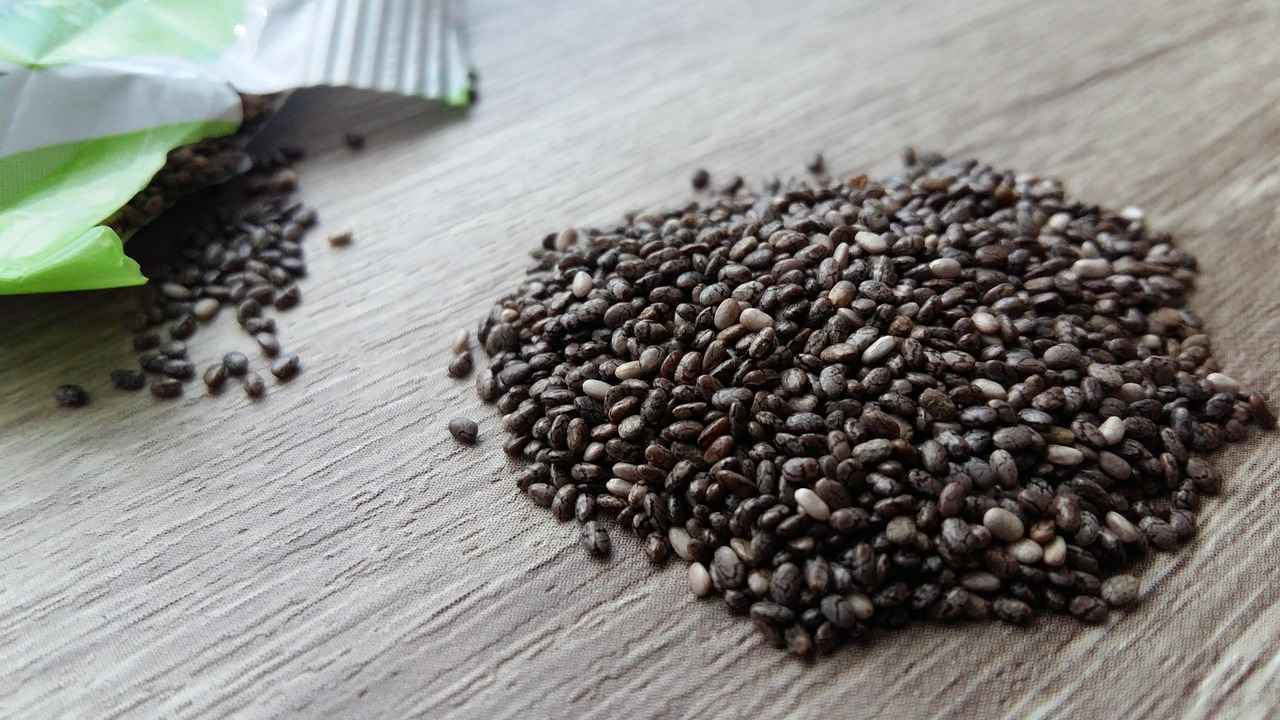
Are Chia Seeds Safe to Consume During Pregnancy?
When it comes to nutrition during pregnancy, every choice counts. One food that has gained popularity among health-conscious individuals is chia seeds. These tiny seeds are often hailed for their impressive nutritional profile, but many expectant mothers wonder: This article delves into the safety of chia seeds, offering insights from health experts and practical advice for incorporating them into a pregnancy diet.
Chia seeds are derived from the Salvia hispanica plant and are packed with essential nutrients. They are an excellent source of omega-3 fatty acids, fiber, protein, and a variety of minerals such as calcium, magnesium, and iron. These nutrients are vital for both maternal health and fetal development, making chia seeds a valuable addition to a pregnant woman’s diet.
Many experts believe that chia seeds are generally safe for pregnant women when consumed in moderation. However, it is crucial to consider individual health conditions and dietary needs. Pregnant women should consult with their healthcare providers before making significant changes to their diet.
Incorporating chia seeds into your diet can offer numerous benefits during pregnancy:
- Rich Source of Omega-3 Fatty Acids: These essential fats are crucial for the brain and eye development of the fetus. Chia seeds are one of the best plant-based sources of omega-3s.
- High Fiber Content: Chia seeds are rich in fiber, which can help alleviate constipation, a common issue during pregnancy. This promotes overall digestive health.
- Protein Boost: Protein is vital for the growth of fetal tissues and the development of the placenta. Chia seeds provide a plant-based protein source that can complement other dietary proteins.
While chia seeds are safe for most pregnant women, there are some potential risks to consider:
- Digestive Discomfort: Consuming chia seeds in excessive amounts or without proper preparation can lead to bloating or digestive discomfort. It is essential to start with small servings and increase gradually.
- Hydration Issues: Chia seeds absorb a significant amount of water, which can lead to dehydration if not consumed with adequate fluids. Always soak them before consumption to minimize this risk.
Incorporating chia seeds into your pregnancy diet can be simple and enjoyable. Here are some practical tips:
- Recommended Serving Sizes: Experts suggest starting with one to two tablespoons of chia seeds per day. Monitor your body’s response and adjust accordingly.
- Preparation Methods: Soaking chia seeds in water or adding them to smoothies can enhance their digestibility. They can also be sprinkled on yogurt, oatmeal, or salads for added texture and nutrition.
Before making significant dietary changes during pregnancy, it’s crucial to consult healthcare providers. They can offer personalized advice based on your health history and dietary preferences.
Research on chia seeds and pregnancy is still evolving, but existing studies indicate that their nutritional profile can be beneficial. Chia seeds are a nutrient-dense food that can support the health of both mother and baby. Ongoing research will continue to shed light on their effects during this critical period.
In conclusion, while chia seeds can be a nutritious addition to a pregnant woman’s diet, moderation and proper preparation are key. Always consult with your healthcare provider to ensure that your dietary choices align with your individual health needs.
Health Benefits of Chia Seeds in Pregnancy
Chia seeds, often regarded as a superfood, are gaining popularity among expectant mothers for their numerous health benefits during pregnancy. These tiny seeds are not only versatile in culinary applications but also packed with essential nutrients that can greatly support both fetal development and maternal health.
- Improved Digestion: Pregnancy can often lead to digestive issues, including constipation. Chia seeds are rich in dietary fiber, which aids in digestion and helps maintain regular bowel movements. Including chia seeds in your diet can alleviate discomfort and promote a healthy digestive tract.
- Enhanced Hydration: Chia seeds can absorb up to 12 times their weight in water, making them an excellent source of hydration. This property can be particularly beneficial for pregnant women, as staying hydrated is crucial for overall health and well-being during pregnancy.
- Boost in Essential Nutrients: Chia seeds are a rich source of omega-3 fatty acids, protein, calcium, and other vital minerals. Omega-3s are especially important for fetal brain development, while protein is essential for the growth and repair of tissues in both the mother and the baby.
The nutritional profile of chia seeds makes them a valuable addition to a pregnant woman’s diet. The high levels of omega-3 fatty acids found in chia seeds can contribute significantly to the development of the fetal brain and nervous system. Additionally, the presence of antioxidants helps protect both the mother and fetus from oxidative stress.
Fatigue is a common complaint during pregnancy, often due to hormonal changes and the physical demands of carrying a baby. The protein and fiber content in chia seeds can help stabilize blood sugar levels, providing sustained energy throughout the day. Incorporating chia seeds into meals can help combat fatigue and maintain energy levels.
Incorporating chia seeds into your daily meals is easy and enjoyable. Here are some practical tips:
- Soaked Chia Seeds: Soaking chia seeds in water or milk for a few hours can enhance their digestibility. This method creates a gel-like consistency that can be added to smoothies, yogurt, or oatmeal.
- Chia Seed Pudding: Combine chia seeds with your choice of milk and sweetener, then let it sit overnight to create a delicious and nutritious pudding.
- Incorporate into Baking: Add chia seeds to muffins, pancakes, or bread for an extra nutrient boost.
While chia seeds are generally safe for most pregnant women, it is important to consume them in moderation. Excessive intake may lead to digestive discomfort due to their high fiber content. Always consult with your healthcare provider to determine the appropriate amount for your individual needs.
In summary, chia seeds offer a plethora of health benefits during pregnancy, making them a valuable addition to an expectant mother’s diet. From improved digestion to enhanced hydration and a boost in essential nutrients, these tiny seeds can play a significant role in supporting both maternal and fetal health.
Rich Source of Omega-3 Fatty Acids
Omega-3 fatty acids are essential fats that play a vital role in various bodily functions, particularly during pregnancy. These fatty acids are crucial for brain development in the fetus, as they contribute to the formation of neural pathways and overall cognitive function. One of the most accessible plant-based sources of these essential fats is chia seeds.
Chia seeds are tiny, nutrient-dense seeds derived from the Salvia hispanica plant, native to Central America. They have gained popularity in recent years due to their impressive nutritional profile. A single ounce (about 28 grams) of chia seeds contains approximately 5 grams of omega-3 fatty acids, primarily in the form of alpha-linolenic acid (ALA), which the body can convert into beneficial forms of omega-3s, such as EPA and DHA, albeit at a lower efficiency.
During pregnancy, the demand for omega-3 fatty acids increases significantly. They are not only important for fetal brain development but also for the development of the nervous system and overall growth. Studies have shown that adequate intake of omega-3s during pregnancy can lead to improved cognitive outcomes in children, as well as a reduced risk of developmental disorders.
Why Are Omega-3s Important?
- Brain Development: Omega-3 fatty acids are fundamental for the growth of the fetal brain and retina. They support the development of neurons and synapses.
- Reduction of Inflammation: Omega-3s have anti-inflammatory properties that can benefit both the mother and the developing fetus.
- Potential to Prevent Postpartum Depression: Some studies suggest that omega-3 intake during pregnancy may help reduce the risk of postpartum depression in mothers.
For pregnant women, incorporating chia seeds into the diet can be an easy and effective way to boost omega-3 intake. Chia seeds can be added to smoothies, yogurt, oatmeal, or even baked goods, providing a versatile option for enhancing meals. Additionally, when chia seeds are soaked in water, they form a gel-like consistency that can be used as a thickening agent in various recipes.
How to Ensure Adequate Omega-3 Intake?
While chia seeds are an excellent source of omega-3s, it is essential for pregnant women to consider a balanced approach to their diet. Here are some tips:
- Combine chia seeds with other omega-3-rich foods such as walnuts, flaxseeds, and fatty fish (if not vegetarian or vegan).
- Monitor serving sizes, starting with one to two tablespoons of chia seeds daily, and adjust based on individual comfort and nutritional needs.
- Consult with a healthcare provider about dietary choices to ensure that both mother and baby receive adequate nutrition.
In conclusion, chia seeds serve as a that can significantly benefit pregnant women and their developing babies. By incorporating these seeds into a balanced diet, expectant mothers can support fetal brain development and overall health during this critical period.
High Fiber Content for Digestive Health
When it comes to maintaining digestive health during pregnancy, the importance of fiber cannot be overstated. Expectant mothers often face various digestive challenges, including constipation, bloating, and discomfort. One of the most effective natural remedies to combat these issues is the incorporation of chia seeds into the diet. These tiny seeds are not only highly nutritious but also boast an impressive fiber content that can significantly enhance digestive health.
Fiber plays a crucial role in supporting overall health, especially during pregnancy. It helps regulate bowel movements, aids in nutrient absorption, and can prevent the uncomfortable symptoms associated with constipation. During pregnancy, hormonal changes can slow down digestion, making fiber intake even more essential.
- High Fiber Content: Chia seeds contain approximately 10 grams of fiber per ounce, making them an excellent source of dietary fiber. This high fiber content can help promote regular bowel movements and alleviate constipation.
- Hydration: When soaked in water, chia seeds expand and form a gel-like consistency. This property not only aids in hydration but also helps bulk up the stool, making it easier to pass.
- Gut Health: The soluble fiber in chia seeds acts as a prebiotic, supporting the growth of beneficial gut bacteria. A healthy gut microbiome is essential for effective digestion and nutrient absorption.
Incorporating chia seeds into your daily meals can be both simple and enjoyable. Here are some practical suggestions:
- Chia Pudding: Mix chia seeds with your choice of milk or yogurt and let them soak overnight. Add fruits and nuts for a nutritious breakfast.
- Smoothies: Blend chia seeds into your smoothies for an added fiber boost. They can enhance the texture and nutritional value without altering the flavor.
- Baking: Add chia seeds to muffins, breads, or pancakes for a nutritious twist on your favorite recipes.
Moderation is key when consuming chia seeds during pregnancy. Experts recommend starting with one to two tablespoons per day. This amount provides ample fiber while minimizing the risk of digestive discomfort. Always ensure to drink plenty of water when consuming chia seeds to aid in their digestion.
While chia seeds are generally safe, consuming them in excessive amounts or without proper preparation can lead to digestive issues. It’s essential to listen to your body and adjust your intake as needed. If you experience any adverse effects, consult with your healthcare provider.
Before making any significant dietary changes during pregnancy, it is crucial to consult with your healthcare provider. They can offer personalized advice based on your health history and dietary needs. This step ensures that you can safely enjoy the benefits of chia seeds while managing any potential risks.
In summary, the high fiber content of chia seeds can be a valuable addition to a pregnant woman’s diet, helping to alleviate common digestive issues and promoting overall digestive health. By incorporating chia seeds in moderation and with proper preparation, expectant mothers can enjoy their numerous benefits while ensuring a comfortable and healthy pregnancy.
Potential Risks of Chia Seeds During Pregnancy
When it comes to chia seeds and pregnancy, understanding the potential risks is as important as recognizing their benefits. While these tiny seeds are often hailed for their nutritional value, it is crucial to approach their consumption with care, especially during pregnancy.
Chia seeds are generally considered safe for most individuals, but pregnant women should be aware of certain risks associated with their consumption. Some of these risks include:
- Digestive Issues: One of the primary concerns with chia seeds is their high fiber content. Consuming them in excessive amounts can lead to digestive discomfort, including bloating, gas, and even constipation. It is essential to introduce chia seeds gradually into your diet to allow your body to adjust.
- Choking Hazard: Chia seeds can absorb a significant amount of water, expanding in size. If consumed dry or without adequate liquid, they may pose a choking hazard, particularly for those unaccustomed to their texture. Always soak chia seeds before consumption to mitigate this risk.
- Allergic Reactions: Though rare, some individuals may experience allergic reactions to chia seeds. Symptoms can range from mild to severe, including skin rashes and gastrointestinal distress. If you have a history of food allergies, consult your healthcare provider before adding chia seeds to your diet.
- Interactions with Medications: Chia seeds are known to have blood-thinning properties due to their omega-3 fatty acid content. Pregnant women taking anticoagulant medications should exercise caution and consult their healthcare provider to avoid potential interactions.
To enjoy the benefits of chia seeds while minimizing risks, consider the following practical tips:
- Start Small: Begin with a small serving, such as one teaspoon, and gradually increase to one or two tablespoons, depending on your body’s response.
- Soak Before Eating: Always soak chia seeds in water or another liquid for at least 30 minutes before consumption. This ensures they expand properly and are easier to digest.
- Stay Hydrated: Increase your fluid intake when consuming chia seeds to help manage their fiber content and prevent digestive discomfort.
- Consult Healthcare Providers: Always discuss dietary changes with your healthcare provider, particularly during pregnancy, to receive personalized recommendations based on your health status.
Health experts generally agree that while chia seeds can be a nutritious addition to a pregnant woman’s diet, moderation is key. They recommend being mindful of portion sizes and preparation methods to avoid potential risks. Additionally, ongoing research is necessary to fully understand the long-term effects of chia seeds during pregnancy.
In conclusion, while chia seeds offer numerous health benefits, pregnant women should approach their consumption with caution. By being aware of the potential risks and following practical guidelines, expectant mothers can safely enjoy the nutritional advantages of chia seeds.
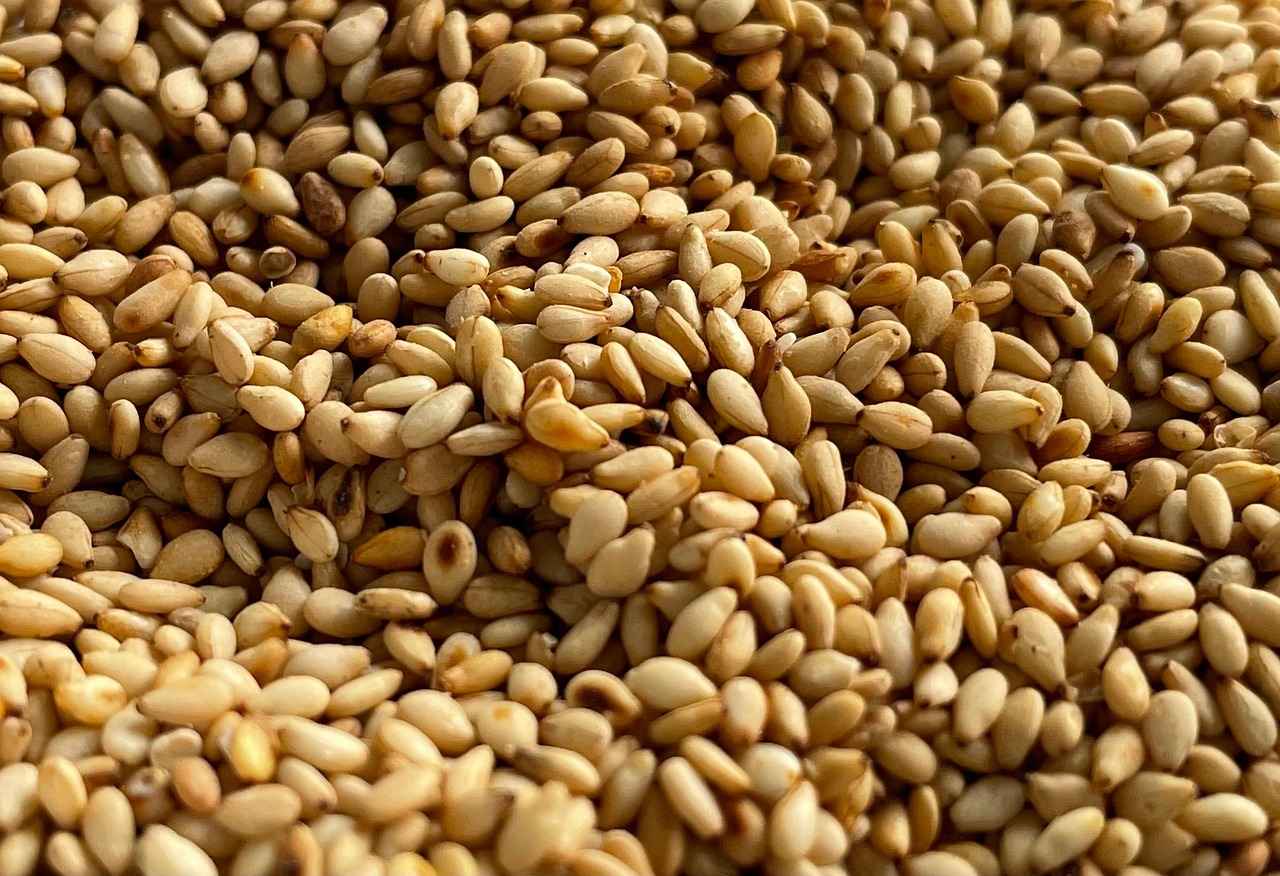
How to Incorporate Chia Seeds into Your Diet Safely?
Incorporating chia seeds into your pregnancy diet can be both easy and enjoyable. These tiny powerhouses of nutrition offer a plethora of benefits, but it’s crucial to do so safely. Here are some practical tips to ensure you reap the benefits while minimizing risks.
- Start with Small Amounts: It’s advisable to begin with one tablespoon of chia seeds per day. This allows your body to adjust to the increased fiber intake and helps you monitor any digestive changes.
- Soak Before Consumption: Chia seeds can absorb up to 12 times their weight in water. Soaking them in water or another liquid for about 30 minutes before consumption can enhance their digestibility and prevent potential digestive discomfort.
- Add to Smoothies: One of the easiest ways to include chia seeds in your diet is by blending them into smoothies. This not only masks their texture but also allows for a delicious way to boost your nutrient intake.
- Incorporate into Breakfast: Sprinkle chia seeds on your morning oatmeal or yogurt. This adds a crunchy texture and increases the nutritional profile of your breakfast.
- Use in Baking: Chia seeds can be added to baked goods like muffins and bread. They can also be used as an egg substitute in vegan recipes, where one tablespoon of chia seeds mixed with three tablespoons of water can replace one egg.
While chia seeds are nutritious, it’s essential to listen to your body. If you experience any discomfort, consider reducing the amount or altering how you prepare them. Consulting with a healthcare provider before making significant dietary changes is also a wise step.
Additionally, ensure you are drinking enough water throughout the day, especially when consuming chia seeds. Their high fiber content can absorb a lot of liquid, and adequate hydration is crucial during pregnancy.
Lastly, consider keeping a food diary. This can help you track how your body responds to chia seeds and other dietary changes. By monitoring your intake and any reactions, you can make informed decisions about your diet.
In summary, incorporating chia seeds into your pregnancy diet can be a delightful and nourishing experience. By following these simple tips, you can enjoy the benefits of chia seeds while maintaining your health and well-being during this important time.
Recommended Serving Sizes for Pregnant Women
When it comes to incorporating chia seeds into your diet during pregnancy, understanding the appropriate serving sizes is crucial for both safety and health benefits. Experts generally recommend starting with one to two tablespoons of chia seeds per day. This initial serving allows your body to adjust to the intake of these nutrient-dense seeds while minimizing the risk of digestive discomfort.
Chia seeds are renowned for their rich nutritional profile, which includes omega-3 fatty acids, fiber, protein, and essential minerals. However, moderation is key. As you begin to include chia seeds in your diet, it’s important to monitor how your body responds. Every individual is different, and some may experience digestive issues if they consume too many seeds at once.
To ensure you are incorporating chia seeds safely, consider the following recommendations:
- Start Slow: Begin with one tablespoon of chia seeds daily. This allows your digestive system to adapt to the increased fiber intake.
- Gradual Increase: If you feel comfortable after a week, you may increase your intake to two tablespoons. Always listen to your body and adjust accordingly.
- Stay Hydrated: Chia seeds absorb a significant amount of water. It’s essential to drink plenty of fluids throughout the day to support digestion and prevent any discomfort.
- Monitor Your Body’s Response: Pay attention to any changes in your digestive health. If you experience bloating or discomfort, consider reducing your intake.
In addition to serving sizes, the preparation methods of chia seeds can also influence their digestibility. Soaking chia seeds in water or adding them to smoothies can enhance nutrient absorption and make them easier to digest. Here are some preparation tips:
- Soaking: Soak chia seeds in water for at least 30 minutes before consumption. This process allows them to expand and become gel-like, making them easier on the stomach.
- Smoothies: Blend chia seeds into your favorite smoothies for a nutrient boost. The seeds can add texture and nutritional value without altering the flavor significantly.
- In Baking: Incorporate chia seeds into baked goods like muffins or breads for added fiber and nutrients.
As you consider adding chia seeds to your pregnancy diet, it’s important to consult with your healthcare provider. They can offer personalized advice based on your unique health circumstances and dietary preferences. This step is especially crucial if you have any pre-existing health conditions or dietary restrictions.
In conclusion, while chia seeds can be a valuable addition to your diet during pregnancy, starting with one to two tablespoons per day and monitoring your body’s response is essential. By following these guidelines and consulting with healthcare professionals, you can enjoy the benefits of chia seeds while ensuring a safe and healthy pregnancy.
Preparation Methods for Chia Seeds
Chia seeds are increasingly recognized for their numerous health benefits, particularly for expectant mothers. One of the key aspects of enjoying these tiny nutritional powerhouses is understanding the best preparation methods to maximize their benefits. Properly preparing chia seeds not only enhances their digestibility but also boosts nutrient absorption, making them a fantastic addition to various meals.
Soaking chia seeds in water or other liquids is a simple yet effective method to improve their digestibility. When soaked, chia seeds expand and form a gel-like consistency, which can aid in digestion and help prevent any potential gastrointestinal discomfort. This gel formation is due to the soluble fiber in chia seeds, which absorbs liquid and swells, making them easier for the body to process.
- Basic Soaking Method: Combine 1 tablespoon of chia seeds with 3 tablespoons of water. Stir well and let it sit for about 15-30 minutes until it forms a gel.
- Overnight Soaking: For a more convenient option, soak chia seeds overnight in your choice of liquid. This method allows the seeds to fully absorb the liquid, making them ready for use in the morning.
Incorporating chia seeds into smoothies is another effective way to enjoy their benefits. Adding soaked chia seeds to your smoothie not only enhances the texture but also increases the nutritional value of your drink. Here’s how:
- Blend with Other Ingredients: Add soaked chia seeds to your favorite smoothie ingredients, such as fruits, vegetables, and yogurt. This combination provides a well-rounded meal rich in vitamins and minerals.
- Experiment with Flavors: Chia seeds have a mild flavor, making them versatile. Try adding them to berry smoothies, green smoothies, or even chocolate-flavored ones for a nutritious boost.
Chia seed pudding is a popular preparation method that not only tastes great but is also incredibly easy to make. Here’s a simple recipe:
Ingredients:- 1/4 cup chia seeds- 1 cup almond milk (or any milk of choice)- 1 tablespoon honey or maple syrup (optional)- Toppings: fruits, nuts, or granolaInstructions:1. In a bowl, mix chia seeds and almond milk.2. Stir well and add sweetener if desired.3. Let it sit for at least 2 hours or overnight in the refrigerator.4. Top with your favorite fruits and enjoy!
Chia seeds can be added to various meals beyond smoothies and puddings. Here are some ideas:
- Sprinkling on Salads: Add a tablespoon of chia seeds to your salads for a crunchy texture and added nutrients.
- Baking: Incorporate chia seeds into baked goods like muffins, bread, or pancakes to enhance their nutritional profile.
- Soups and Stews: Stir in soaked chia seeds into soups or stews for added thickness and nutrition.
In conclusion, the preparation methods for chia seeds are diverse and can easily fit into any diet, especially for pregnant women seeking to boost their nutrient intake. Whether soaking them, blending them into smoothies, or incorporating them into meals, chia seeds provide a wealth of health benefits when prepared correctly. Always remember to consult with a healthcare provider before making significant dietary changes during pregnancy.
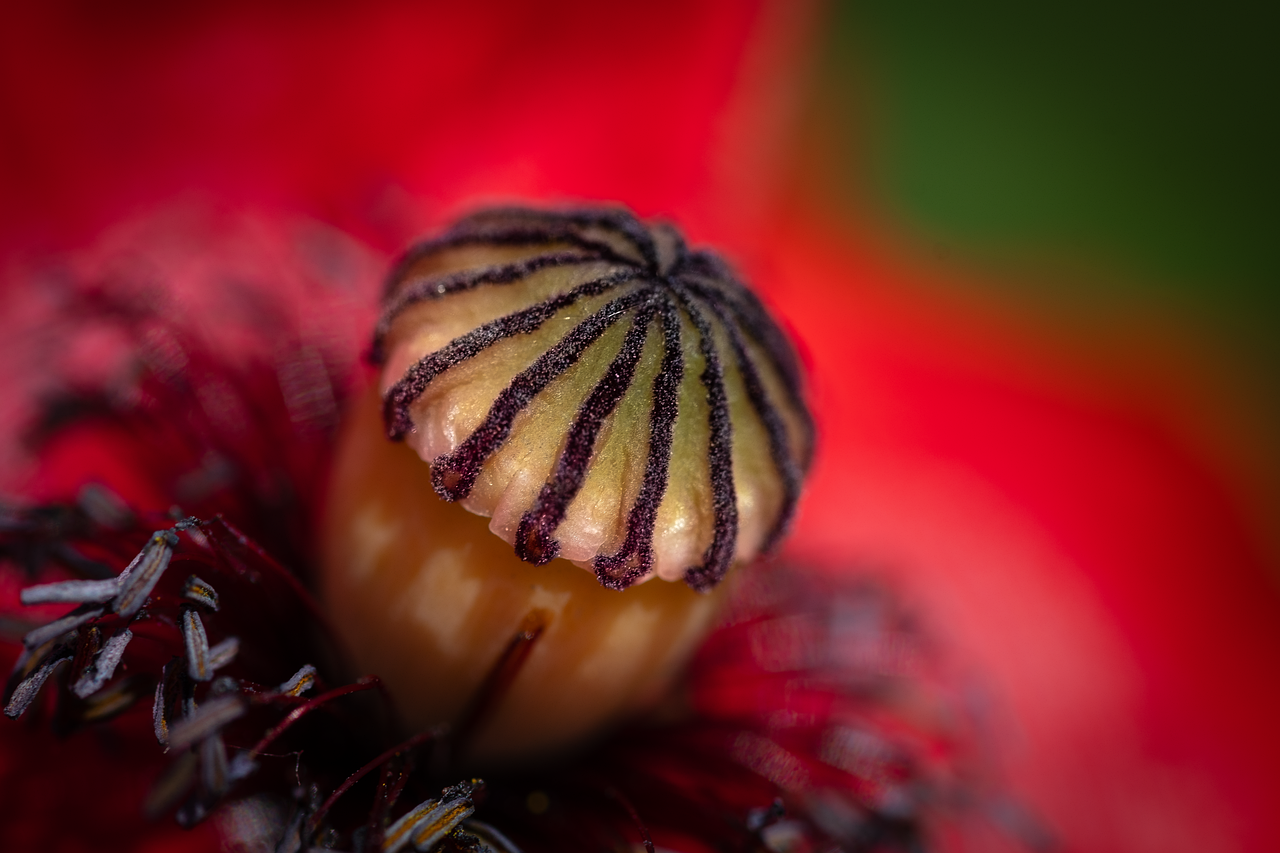
Consulting Healthcare Providers About Dietary Choices
Making dietary choices during pregnancy can be both exciting and overwhelming. Expectant mothers often seek to optimize their nutrition for the health of their baby and themselves. However, before making any significant changes to your diet, it is essential to consult with healthcare providers. These professionals can offer tailored advice that considers your unique health circumstances and dietary preferences.
Pregnancy is a time of rapid change in a woman’s body, and nutritional needs can vary greatly among individuals. Consulting healthcare providers ensures that dietary adjustments are safe and beneficial. Here are some reasons why this step is crucial:
- Personalized Nutrition Guidance: Every pregnancy is different, and healthcare providers can tailor advice based on medical history, lifestyle, and specific nutritional needs.
- Monitoring Health Conditions: Women with pre-existing health conditions or those at risk for complications need specialized dietary recommendations to support their health and their baby’s development.
- Understanding Dietary Restrictions: Some foods may pose risks during pregnancy, and healthcare providers can help identify which foods to avoid.
Healthcare providers, including obstetricians, dietitians, and nutritionists, can provide a wealth of information and resources:
- Nutritional Assessments: They can evaluate your current diet and suggest modifications to ensure you’re meeting your nutritional needs.
- Supplement Recommendations: If certain nutrients are lacking in your diet, they may recommend supplements to fill those gaps.
- Safe Food Practices: Providers can educate you on safe food handling and preparation practices to minimize the risk of foodborne illnesses.
It’s advisable to consult a healthcare provider as soon as you find out you’re pregnant. However, you should also seek guidance if:
- You Have Dietary Restrictions: If you’re vegetarian, vegan, or have allergies, it’s important to discuss how to maintain a balanced diet.
- You Experience Digestive Issues: Issues like nausea or constipation are common during pregnancy, and a provider can suggest dietary adjustments to alleviate these symptoms.
- You Want to Make Significant Changes: If you’re considering a drastic shift in your diet, such as adopting a new eating plan, consult a professional first.
To make the most of your appointment with a healthcare provider, consider the following tips:
- Keep a Food Diary: Document what you eat and drink for a few days leading up to your appointment. This information can help your provider understand your current habits.
- List Your Concerns: Write down any questions or concerns you may have about your diet, weight gain, or specific foods.
- Be Open About Lifestyle: Share details about your activity level, stress, and any other factors that may influence your nutrition.
In conclusion, consulting healthcare providers about dietary choices during pregnancy is not just a recommendation; it is a necessity. By seeking professional advice, expectant mothers can ensure they are making informed decisions that support their health and the health of their baby. This proactive approach can lead to a healthier pregnancy experience and ultimately nurture a strong foundation for the baby’s future.
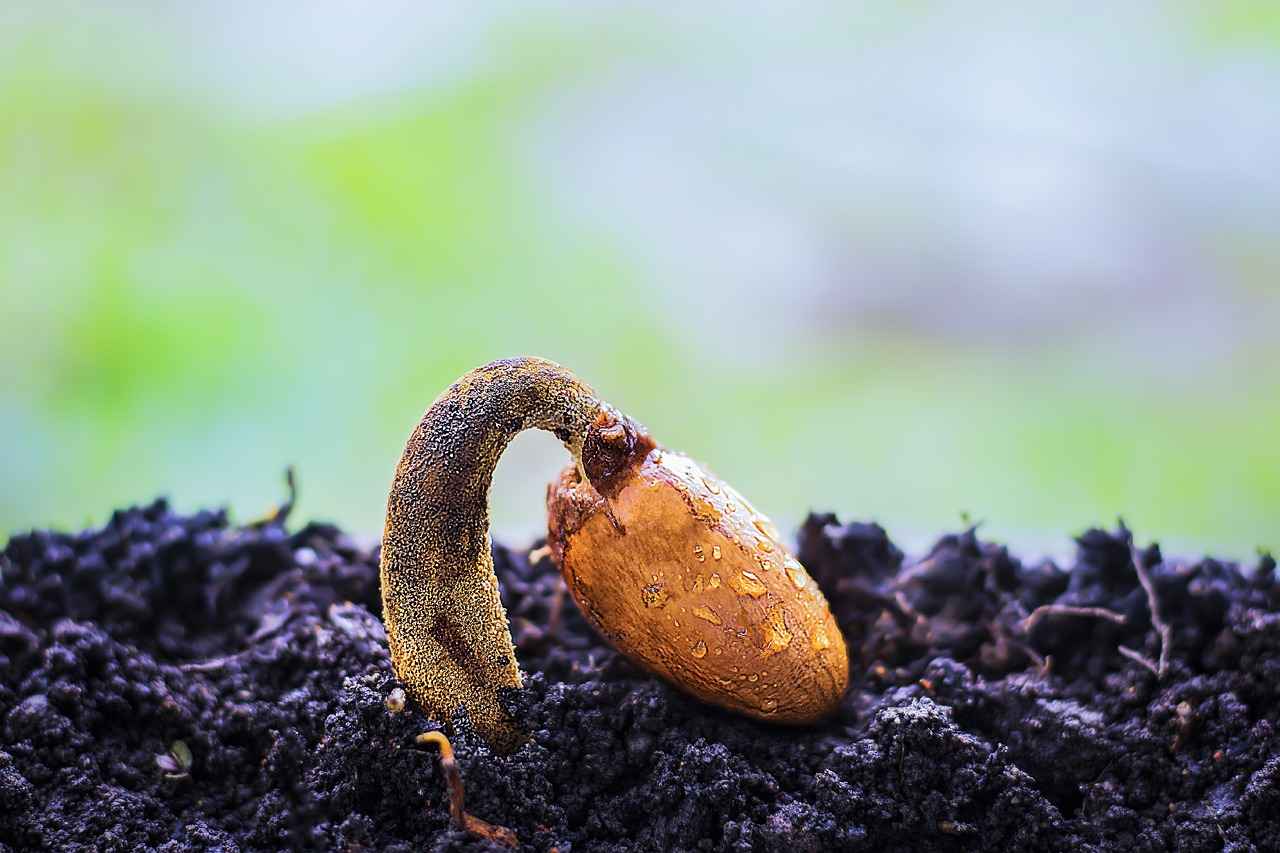
What Do Studies Say About Chia Seeds and Pregnancy?
When it comes to nutrition during pregnancy, expectant mothers often seek out foods that can provide essential nutrients for both themselves and their developing babies. One such food that has garnered attention is chia seeds. While research on chia seeds specifically in the context of pregnancy is still emerging, existing studies indicate that their nutritional profile may offer several benefits.
Research on chia seeds and pregnancy is limited, but existing studies suggest that their nutritional profile can be beneficial. Chia seeds are a rich source of omega-3 fatty acids, which are crucial for fetal brain development. They also contain significant amounts of fiber, protein, and essential minerals like calcium and magnesium. These nutrients play a vital role in supporting the health of both the mother and the growing fetus.
One study published in the Journal of Nutrition highlighted that the consumption of omega-3 fatty acids during pregnancy is linked to improved cognitive function in children. This finding underscores the importance of incorporating foods like chia seeds into the diet of pregnant women. Furthermore, the fiber content in chia seeds can help alleviate common digestive issues associated with pregnancy, such as constipation, making them a practical addition to an expectant mother’s diet.
Yes, chia seeds can be beneficial for fetal development. The omega-3 fatty acids found in chia seeds are essential for the development of the fetal brain and eyes. These fatty acids are known to support cognitive function and may even contribute to better visual acuity in newborns. Additionally, the high levels of calcium and magnesium in chia seeds can aid in the development of the baby’s bones and teeth.
While chia seeds are generally safe for consumption during pregnancy, there are potential risks to consider. Consuming excessive amounts of chia seeds can lead to digestive discomfort due to their high fiber content. It is recommended that pregnant women start with a small serving size, such as one tablespoon, and gradually increase it as their bodies adjust. Additionally, chia seeds should always be properly prepared—soaking them in water or adding them to smoothies can enhance their digestibility.
Incorporating chia seeds into a pregnancy diet can be simple and enjoyable. Here are some practical tips:
- Add to Smoothies: Blend chia seeds into your favorite smoothies for a nutrient boost.
- Top Your Breakfast: Sprinkle chia seeds on oatmeal or yogurt for added texture and nutrition.
- Baking: Include chia seeds in baked goods, such as muffins or pancakes, for an extra health kick.
- Hydration: Mix chia seeds with water to create a gel-like consistency that can be consumed on its own or added to drinks.
Before making any significant dietary changes during pregnancy, it is essential to consult with healthcare providers. They can offer personalized advice based on individual health needs and dietary preferences, ensuring that both mother and baby receive optimal nutrition.
In conclusion, while more research is needed to fully understand the effects of chia seeds during pregnancy, existing studies suggest that these tiny seeds can be a nutritious addition to an expectant mother’s diet. With their rich profile of essential nutrients, chia seeds may support both maternal health and fetal development when consumed in moderation.
Frequently Asked Questions
- Can I eat chia seeds every day during pregnancy?
Yes, you can eat chia seeds daily, but moderation is key. Start with one to two tablespoons and monitor how your body reacts.
- What are the health benefits of chia seeds for pregnant women?
Chia seeds are packed with omega-3 fatty acids, fiber, and essential nutrients that support both fetal development and maternal health, aiding in digestion and hydration.
- Are there any risks associated with consuming chia seeds while pregnant?
While generally safe, excessive consumption or improper preparation can lead to digestive discomfort. It’s important to soak them or add them to smoothies for better digestibility.
- Should I consult my doctor before adding chia seeds to my diet?
Absolutely! Always consult your healthcare provider before making dietary changes during pregnancy to ensure it’s safe for your individual health needs.
- How should I prepare chia seeds for the best results?
Soaking chia seeds in water or adding them to smoothies can enhance their nutrient absorption and make them easier to digest, making them a versatile addition to your meals.
